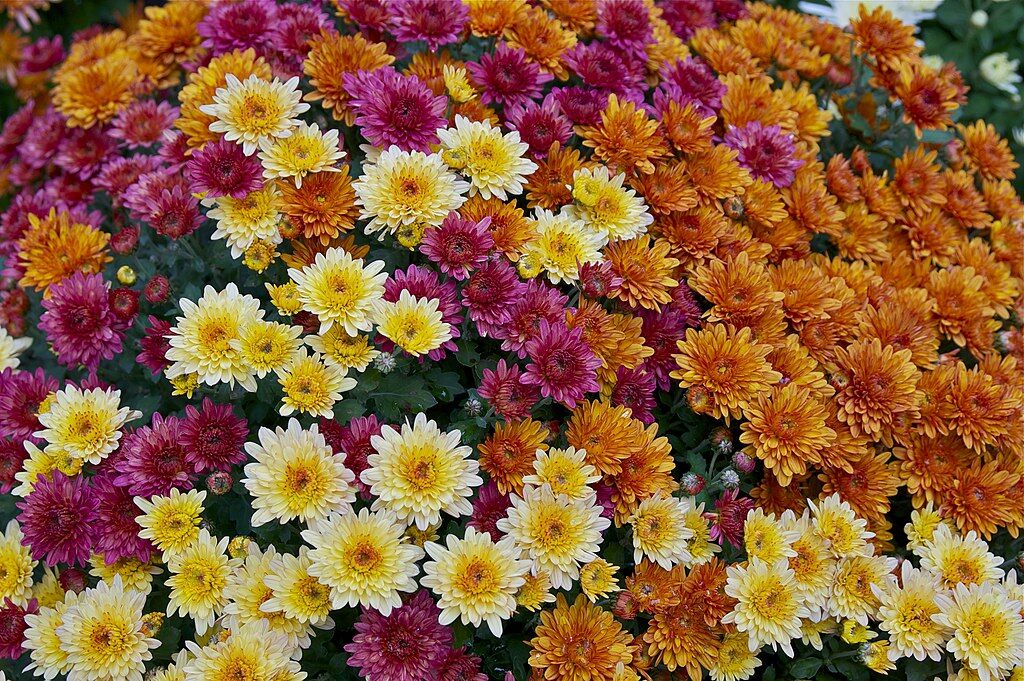Fall is time for the changing of the guard in flower beds and containers. As some summer flowers shout their last hurrah, others gradually fade into the background.
To fill in holes in the landscape, many nurseries and garden centers offer replacement plants such as mums, asters and pansies that will spruce up areas where summer plants have dwindled, said University of Missouri Extension horticulturist David Trinklein. Milder temperatures in late summer allow plants to convert more sugars into vibrant plant pigments that help them put on vivid displays of color.
To provide instant pop in the garden, Trinklein recommends plants with well-developed root systems in relatively large containers. It is too late in the growing season for small plants to produce masses of color. Avoid “clearance sale” plant material carried over from spring bedding plant sales. Flowers in small packs or containers are not good choices. They are likely to be root-bound and difficult to establish.
Mums, asters, pansies, violas and English daisies make good choices for fall color and usually are available in retail outlets during late summer, Trinklein said.
Late summer is an ideal time to rejuvenate beds and pots that show the ravages of summer heat, he said. Some flowers, such as petunias, benefit from a “haircut.” A light shearing encourages new growth and more compact, colorful plants. It is also a good time to give plants a nutritional boost. Heavy-feeding species such as geranium often benefit from a light fall feeding. This will result in more robust blooming and greater plant vigor.
Check for insect, disease and weed problems. Keep pest populations under control through the end of the growing season. Finally, after the first killing frost, fall garden cleanup prevents problems in the coming growing season, Trinklein said.
A fall soil test will give gardeners a head start on a healthy, productive garden next spring. MU Extension’s Soil and Plant Testing Laboratory offers low-cost soil testing services. Visit soilplantlab.missouri.edu(opens in new window) to learn more.
For more gardening tips from MU Extension, go to muext.us/LawnGardenNews(opens in new window).


